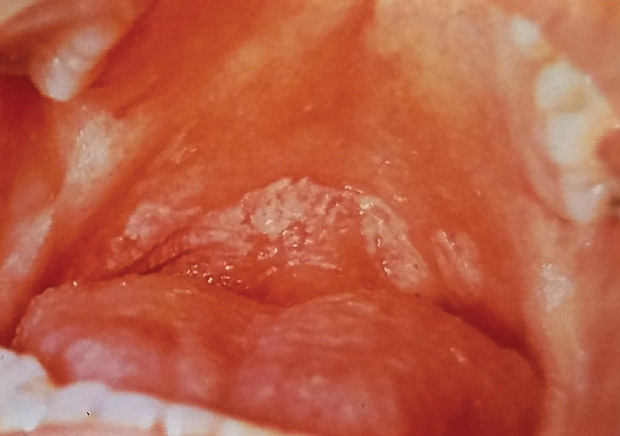Spring planting for a new harvest
The COVID-19 pandemic has taken half a million American lives. Amid this loss, the new year offers new political leadership, new insights, and new plans for the future.
It's a new dawn, it's a new day, it's a new life, for me, and I'm feeling good!” So go the lyrics for “Feeling Good” by Leslie Bricusse and Anthony Newley.
Indeed, it feels like a new day in the life of our country. This spring brings the promise of a new start with a new administration, a new Congress, new leadership, new insights, new perspectives, and new plans. Spring is also a time of replenishment of the soil and renewal of our lives, a time to plant new seeds and use the lessons of 2020 to forge new plans and strategies for the harvest of better crops and outcomes in the fall of 2021 and beyond.
2020 and the cold, dark, and deadly winter of 2021 have taken half a million American lives. The number is incomprehensible, and we have only just begun to fathom the suffering and all we have lost in the lives taken. As President Joe Biden said in his inaugural address, “We have much to do, much to heal, much to restore, much to build, and much to gain” from this winter of peril. Our country has been challenged like never before with the simultaneous crises of the pandemic, economic collapse, civil unrest, and a divisive election followed by an attempted insurrection at our Capitol. The inauguration of a new president and new administration enables us to set a new course. Let us put the cold, dark, and deadly winter behind us and welcome the warm, sunlit days of a new dawn, a new day, and the new life of spring.
The American people voted in November to clear new land, and the soil of our American garden has been tilled with a new administration and new Congress. We must now help prepare the soil in the new garden of possibilities. We must help our new administration and Congress to implement a national strategy of quickly ending the loss of life from the pandemic and setting us on a new course of unity to defeat the COVID-19 virus, to provide comfort to our nation, heal our wounds, get us on the path to health and financial recovery, and reignite our love of our country and, more important, our love for one another.
We must begin to see each person as a child of God worthy of our care, compassion, and concern. It is only when we view each person as valued and valuable that we can make the big and bold bipartisan decisions so desperately needed to move our country forward … together. Unity and compassion are the key ingredients to prepare the soil for new seeds to grow in our country and “create that more perfect union,” the aspiration etched in our country's DNA.
Our U.S. Constitution proposes in the preamble that “in Order to form a more perfect Union,” the people would “establish Justice, insure domestic Tranquility, provide for the common defence, promote the general Welfare, and secure the Blessings of Liberty to ourselves and our Posterity.” In an essay published on the website of the National Constitution Center, law professors Erwin Chermerinsky and Michael Stokes Paulsen tell us, “The stated goal [of the Constitution] is to create a government that will meet the needs of the people.” As the United States of America, our forefathers (with opinions and insights from our foremothers, I'm sure) made the decision to choose unity long ago in 1776, and again in 1865. Our country has always aspired to a sense of fairness and hard work to get us all to that more perfect union. Let us all renew that aspiration in 2021.
The new Biden administration has just begun to interpret its understanding of our Constitution through the many tools of government to harness business, industry, agriculture, and the people themselves to move our country toward a more perfect union. Since we are at war with a deadly microbial enemy, providing for our common defense against COVID-19 is number one on the agenda. We must first secure the country from this common enemy.
Next, the new administration must ensure domestic tranquility and promptly deal with those domestic terrorists who would create chaos and division in our country, to the point of insurrection against the government itself. We must establish justice by providing for truly equitable treatment of all the people in our country under the law.
Next, we must promote the general welfare, which according to the U.S. Capitol Visitor Center means “protecting the health and environment, seeking ways to solve social and economic problems,” in addition to “improving transportation and promoting agriculture and industry.” All of these elements critical to the general welfare certainly have direct relevance to health care in our country.
Finally, as citizens of this country, we must all have this common constitutional understanding in order to “secure the Blessings of Liberty,” those being life, liberty, and the pursuit of happiness for everyone.
In our new garden of opportunity, the College is providing the seeds of evidence-based policies to the new administration on many of the health policy priorities laid out in our new vision for America's health care system, which was published in Annals of Internal Medicine in January 2020. We believe the new soil provides important opportunities for the College's policies to be considered and incorporated into the Biden administration, including how to end the COVID-19 pandemic, improve the Affordable Care Act, support the value of and supply of physicians providing primary and comprehensive care, and advance telehealth and health information technology initiatives.
In addition, the College has submitted information and policy recommendations to expand and improve Medicaid, improve the health of immigrants and support our international medical graduates, address climate change and environmental health, reduce injuries and deaths from firearms, improve the transition to value-based payment, and make prescription drugs affordable. It is a start on an ambitious garden that could bear a continual harvest for years to come.
The College will continue to provide the fundamental nutrients of science and compassion to educate and advocate for the health of our nation. We will nurture relationships with our physician colleagues along with the new Congress and new administration. ACP members will continue to provide compassionate care to our patients as always. We will evolve and change to meet the challenges we face, but we must have cooperation and action from government, private insurers, and pharma to make truly possible the Quadruple Aim of better care, better health, lower total costs, and physician/clinician well-being. It is within our reach.
As a nation, we have gone through collective suffering this past year. It is our minority populations, especially the Black, Latino, and Indigenous populations, along with our frontline physicians, nurses, and health care workers, who have endured the greatest suffering, death, and mourning in an up-close and devastatingly personal way. The tears of our communal suffering are part of our common humanity and will help water the seeds in our garden with understanding, empathy, and compassion.
The book “Compassionomics,” by Stephen Trzeciak, MD, MPH, and Anthony Mazzarelli, MD, JD, MBE, tells us that “Compassion is the emotional response to another's pain or suffering.” It concludes that empathy hurts, but compassion heals. Surely our tears of suffering in the past year are not in vain but have created a nutrient-rich, empathic understanding of one another. I hope that growing empathy has created a passionate desire for action. It is now up to us, the people of our dear country, to move from the feeling of empathy to the action of compassion, to fuel the needed daily tending of the garden in order to reap the bountiful harvest.
Compassion is one of the College's stated core values: “We respect the dignity of others and are sensitive and empathic to their needs.” As Francis Weld Peabody, MD, simply stated, “The secret of the care of the patient is in caring for the patient.” “Compassionomics” makes the evidence-based scientific argument regarding the positive “effects of compassion on patient outcomes, patient safety, provider well-being, employee engagement and organizational performance.”
In the foreword to the book, Sen. Cory Booker writes, “A commitment to one another, to a common purpose, and to our highest ideals… is the powerful force that has always sustained us as a nation. We are a country that rightly values the ethics of self-reliance and rugged individualism, but we also understand the necessity of our larger communal ethic – that our greatest achievements as Americans are the result of collective struggle and sacrifice …. Practicing compassion—caring for one another and seeing the struggles of others as our own—isn't just the right thing to do, it's the smart thing to do.”
Compassion is the fuel, “Miracle-Gro” if you will, for our work as physicians and our collective work at the College. It will nourish the seeds of patient-centered College policy to take root, grow properly, and produce a harvest of good fruit that is resilient against the harsh environments of cynicism, inertia, and partisan gridlock. We cannot restrain ourselves from compassion when it will bring healing. Let us put down new soil, plant our seeds, nurture them, and expect a new harvest of compassion for our patients, ourselves, and our country. Springtime brings a new dawn, a new day, and I'm feeling good about the new garden of possibilities ahead for the College and our country. So, roll up your sleeves and join me for spring planting. We have lots of important work to do.




